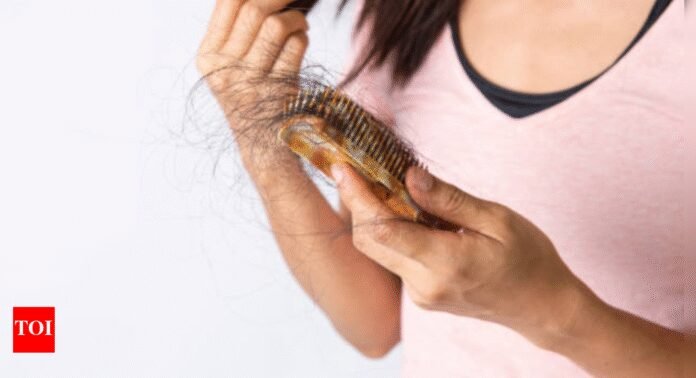Can Omega-3 Supplements Really Help with Hair Loss?

Have you ever found yourself searching “how to stop hair loss” late at night? You’re not alone. Many people worry when they see more hair than usual on their pillow. Omega-3 supplements often come up as a solution. But do they really work?
What Are Omega-3s?
Omega-3s are essential fats that your body can’t produce. You need to get them from food or supplements. There are three main types:
- EPA
- DHA
- ALA
EPA and DHA are found in oily fish like salmon and sardines. ALA is in plant-based foods like flaxseeds and walnuts. EPA and DHA are crucial for hair and scalp health. They nourish the skin, reduce inflammation, and keep your scalp hydrated.
How Do Omega-3s Help with Hair Loss?
Hair loss isn’t random. It can be caused by genetics, hormones, stress, and daily habits. Inflammation and poor nutrition often play a role too. Omega-3s can help by:
- Reducing inflammation around hair follicles.
- Improving blood circulation to help hair roots get nutrients.
- Keeping your scalp healthy and moisturized.
Omega-3s support a healthier scalp and better hair conditions. But they’re not a miracle cure. It’s about creating a good foundation for your hair to grow.
What Does Science Say?
Some studies suggest omega-3s can help with hair loss. For example, a 2015 study looked at women who took omega-3 and omega-6 supplements with antioxidants for six months. The results showed less hair loss and better hair density.
Another study found that fish oil might thicken the hair shaft, making hair look fuller. However, most studies combine omega-3s with other nutrients, so it’s hard to know how much omega-3s alone can do. Still, science generally supports omega-3s as part of a healthy hair plan.
How to Take Omega-3s for Hair Health
If you want to try omega-3s, start with a high-quality supplement. Look for one with both EPA and DHA that’s free from harmful substances like mercury. Most people benefit from around 250 to 500 mg a day. Always consult a healthcare provider before increasing the dosage.
Remember, this isn’t a quick fix. Hair grows slowly, so you need to be consistent for at least three to six months to see changes. Also, your hair needs more than just omega-3s. It needs zinc, iron, vitamin D, protein, and a healthy lifestyle. Take your omega-3s with food that contains some fat to help your body absorb them better.
What If It Doesn’t Work?
Not all hair loss issues can be fixed with a supplement. If your hair loss is due to hormones, genetics, or an autoimmune issue like alopecia areata, omega-3s alone won’t be enough. They might still help with inflammation or scalp health, but you’ll need a more targeted approach.
Also, don’t assume more is better. Taking too much omega-3 can cause issues, especially if you’re on certain medications. Always consult a healthcare provider for personalized advice.
Is the Omega-3 Hype Justified?
Omega-3s won’t magically solve every hair issue. But if you’re not getting enough omega-3s through your diet, adding them can help. They can reduce hair loss, add shine, improve scalp condition, and provide extra care for your body.
But like anything health-related, it’s a marathon, not a sprint. You need to eat well, sleep enough, manage stress, and give it time. Omega-3s can support the journey, but they’re not the whole solution.
If, after a few months, your hair’s still not improving, it might be time to see a dermatologist or trichologist. While fish oil is great, sometimes your scalp needs more than just one hero ingredient to bounce back.



